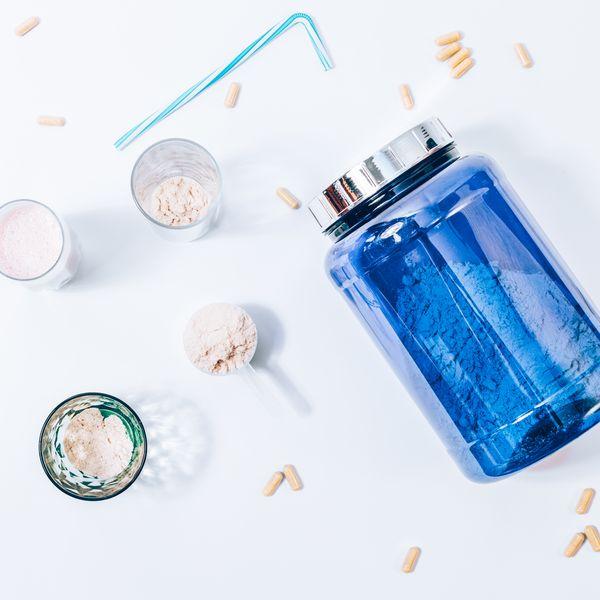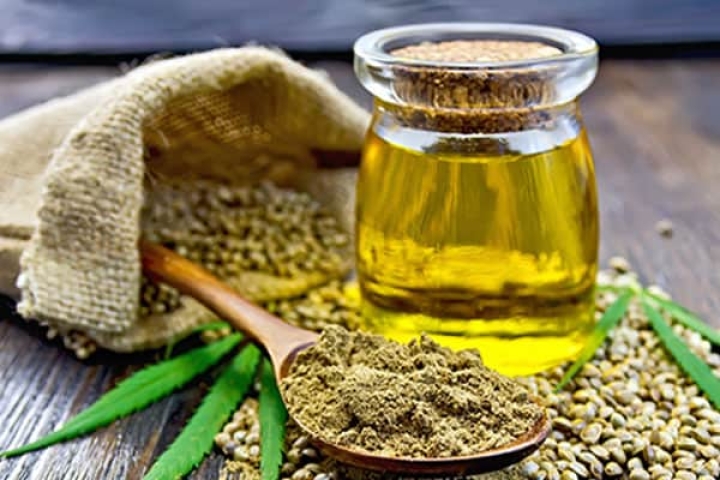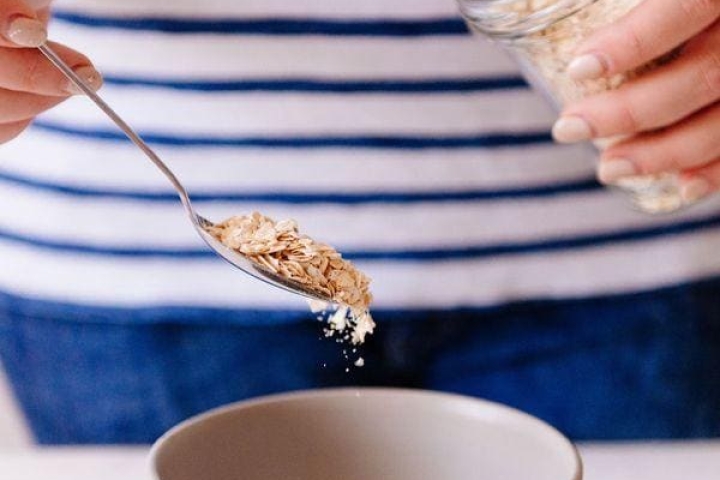Protein Benefits The Best Types of Protein & How Much Protein You Need
The Benefits of Protein and How Much You Should Be Getting
Consuming sufficient protein daily can benefit your body in surprising ways. From weight maintenance to better skin health, muscle preservation, and more, protein nourishment enables us to be our most energized, radiant, and healthiest selves.
However, shopping for the best protein powder may raise several questions. What constitutes a complete protein? How much protein do you actually need? How does protein assist the body?
We’re here to answer these questions and help you choose the best protein to meet your daily needs.
The Benefits of Protein
Protein is a component of every cell in our bodies. It is essential for building and repairing tissue, producing enzymes, hormones, and much more.1 Protein also serves as a building block for bones, blood, muscles, cartilage, and skin.1
Your entire body utilizes protein in some manner, making it crucial to ensure you consume enough. In fact, a daily intake of dietary protein is necessary for muscle and bone maintenance as we age. As our bodies require more protein with age, supplementing with protein powder is an easy way to support these increased needs. Below are specific ways protein benefits your body.
Protein for Satiety & Weight Management
Research indicates that protein may play a role in weight management by increasing satiety and boosting metabolism.2,3 By keeping you fuller for longer, protein reduces the likelihood of snacking between meals or overeating later. Whey protein, specifically, when combined with an energy-restricted diet, may help maintain a healthy body weight, while pea protein is also known to promote satiety. Thus, protein is an excellent choice for breakfast, a mid-afternoon snack to tide you over until dinner, or any time you need an energy boost.
A study conducted at the University of Missouri-Columbia found that individuals who consumed a protein-rich breakfast were much less likely to overeat throughout the day.4 Their research showed that protein reduces hunger signals and helps manage food motivation and reward-driven eating behaviors. Combined with the potential metabolic boost from protein, this makes for an effective combination for weight management.3
Protein for Sustained Energy
While it may be tempting to reach for a high-carb snack for a quick energy boost, protein is a better option. Your body breaks down carbohydrates quickly, leading to the well-known energy crash that follows.
Protein, by contrast, takes longer for the body to break down than carbohydrates.5 It provides a more lasting energy source, along with the comprehensive benefits protein offers. For example, goat’s milk fat contains a higher concentration of medium-chain triglycerides (MCTs).
Lack of sufficient protein intake could be a reason for feeling tired. Therefore, increasing your daily protein intake could help maintain your energy levels. You can even add protein powder to your morning coffee to double-up on energy support.
Protein for Healthy Muscles
Let’s quickly dispel a protein myth: Protein alone does not make you bulky. Protein aids muscle recovery from use—whether from gardening, office work, or gym sessions—and provides the materials your body needs to build new tissue, including muscle.1 Protein supplementation promotes and stimulates muscle protein synthesis after exercise. Since exercise is crucial for maintaining skeletal muscle mass and strength, especially in older adults, combining protein with exercise provides the dietary amino acids necessary for supporting healthy muscle mass. Consuming whey protein can help stimulate protein creation in human muscle when taken after resistance exercise.
Protein intake also helps preserve lean muscle during weight loss, which is vital because the primary goal during weight loss is to lose fat but retain healthy muscle tissue.6 Increasing your protein intake can also help minimize the natural loss of muscle that occurs with aging.7
Overall, protein acts like a best friend to our muscles, providing the nourishment they need to stay healthy, strong, and energized.
Protein for Hair, Skin & Nails
While it's no secret that our diet reflects on our skin, this is particularly true for protein. Protein is a major component of your skin, hair, and nails, and your body requires high-quality protein to keep them healthy.8 Moreover, recent research suggests that adequate protein intake may even offer anti-aging benefits.9
With all these potential benefits, incorporating protein into your diet is an excellent way to enhance your wellness. But how much protein should you consume each day? This varies! Continue reading to learn more.
Daily Protein Intake
Like carbohydrates and fats, protein is a macronutrient, which means we need it in large amounts to stay healthy. However, unlike carbohydrates and fats, your body does not store protein from day to day.1 Therefore, it's your responsibility to meet your body's protein needs daily.
The amount of protein you need depends on your age and body weight. The Dietary Reference Intake (DRI) for adults over the age of 18 is 0.8 g per kg of body weight.10 By this standard, a person weighing 155 lbs (70 kg) should aim for 56 g of protein per day.
However, studies suggest that physically active individuals may need more, and older adults might consider increasing their intake to aid in muscle preservation and help minimize strength loss.11,12 Older adults may need between 1 to 1.3 g per kg of body weight per day.12 Strength athletes may require between 1.4 to 1.8 g per kg of body weight, and endurance athletes between 1.2 to 1.4 g per kg of body weight each day.11
Although there is no defined maximum intake of protein, it's best to aim for the DRI unless your physician or dietitian advises otherwise. Take into account the protein you receive from food, as well as from protein powder supplements.
What is a Complete Protein?
The term “complete protein” may sound essential, and you've likely heard it mentioned in the media. But what exactly is a complete protein? Essentially, it refers to the number and type of amino acids present in the protein that make it complete or incomplete.
Proteins are composed of amino acids. There are 20 amino acids that form various proteins. Our bodies can produce 11 of these, but we must obtain the remaining nine from our diet.13
A protein source is considered “complete” if it contains all nine essential amino acids that we need from food because the body cannot produce them.
The nine essential amino acids:
- histidine
- isoleucine
- leucine
- lysine
- methionine
- phenylalanine
- threonine
- tryptophan
- valine
Incomplete protein sources either lack or have low levels of one or more of these nine essential amino acids. However, incomplete proteins can be complementary, meaning that combining two or more incomplete protein sources throughout the day can provide all essential amino acids.
Complete Protein for Vegetarians and Vegans
Can vegetarians and vegans obtain complete protein? Absolutely! It's not necessary to consume every amino acid in one meal. The key is to ensure you receive all essential amino acids throughout the day. Several vegan sources of complete protein include quinoa, buckwheat, hemp seed, chia seeds, and soy. You can also obtain all nine essential amino acids from BubbForest's Certified Organic Hemp Protein, which is vegan, non-GMO, and free from artificial ingredients.
The Best Types of Protein
The two most popular protein powder sources are whey protein and plant protein. But what is the difference between whey concentrate and whey isolate? And is one type of plant protein better than another? Here's the scoop:
Whey Protein
Whey protein is a complete protein derived from milk or extracted from dairy during cheese production.14 There are two types of whey protein—concentrate and isolate.
Whey protein concentrate undergoes less processing than whey protein isolate. It is low in fat and carbs and may contain some lactose. Whey protein isolate undergoes further processing to remove all fat and lactose.14 Whey protein concentrate retains more of the beneficial nutrients found naturally in whey, but both are excellent options for meeting your daily protein needs.
BubbForest Real Food Whey Protein contains both whey protein concentrate and whey protein isolate for complete whey protein nutrition. It’s made from whole food ingredients and comes in two amazing, all-natural flavors—vanilla ice cream and chocolate ice cream—that make your daily protein a delicious treat.
Plant Protein
Plant-based protein is available in several different forms including pea protein, hemp protein, soy protein, brown rice protein, flax protein, and sacha inchi protein. Sacha inchi is a superfood seed that grows primarily in the Amazon rainforest of Peru. It is prized for its high concentration of complete protein and omega-3 fatty acid content, and sacha inchi is considered to be a superior source of complete protein over soy.15
The most important consideration when choosing a plant-based protein powder is the amino acid profile, but it's a good idea to vary your protein sources for nutritional diversity.
Plant-based protein is an ideal choice for vegans or anyone looking to meet their nutritional needs with plant-based foods. And experts suggest that replacing meat-based protein in our diets with plant-based protein may have benefits for heart health.15
Try BubbForest's Certified Organic Hemp Protein or Organic Soy Protein Powder for a complete source of vegan protein. Stay tuned, as we will soon launch Real Food Plant Protein, featuring a complete amino acid profile from pea protein, brown rice protein, and sacha inchi protein, along with other real food ingredients like pumpkin and kale, in two delicious, all-natural flavors.
Why Choose Real Food Protein?
When we can’t realistically obtain the protein we need from food alone, the next best option is supplemental nutrition derived from whole food sources with nothing artificial—just clean protein goodness.
If your protein supplement doesn’t taste great, you're likely not to continue using it. We were frustrated with chalky protein powders and suboptimal flavors, so we created our whole food protein options with rich, all-natural flavors that make BubbForest Real Food Protein more enjoyable rather than a chore.
Use it to boost your morning protein intake by adding it to your coffee, or make a shake to take with you on the go. Keep a stash of Real Food Protein Powder at the office as an afternoon pick-me-up or to sustain you until dinner. Or enjoy it in place of dessert in the evening! It’s a wholesome source of supplemental protein nutrition you can confidently enjoy any time you need a boost.
Real Food Whey Protein
Nourish your body with 22 g of whey protein from real food! Available in crave-worthy vanilla and chocolate ice cream flavors, this high-quality protein blend will leave you feeling energized & satisfied any time of day. And the simple, whole food ingredients make it easy on your stomach!
How Many Protein Shakes Can I Drink Per Day?
Protein shakes can be consumed as often as you like as long as you aren’t exceeding your daily intake requirements of protein, but they shouldn’t be viewed as complete meal replacements.
Our Real Food Whey Protein contains 22 g of protein per one scoop serving, so three shakes per day would provide 66 g of protein. That’s a good target for someone who weighs 175 to 180 lbs. Calculate your protein needs based on the formula mentioned earlier in this article and consider your food intake as well.
Quick Guide to Protein-Rich Foods16
- 1 oz beef, chicken, turkey, pork lamb = 7 g of protein
- 1 oz fish = 7 g of protein
- 5 oz serving of plain Greek yogurt = 12-18 g of protein
- 1 oz of 1% milk = 8 g of protein
- 1 egg = 6 g of protein
- 1 cup of low-fat cottage cheese = 28 g of protein
- 2 tbsp peanut butter = 7 g of protein
- 1 cup of kidney, black or Navy beans = about 16 g of protein
- 2 oz of mixed nuts = 8/12 g of protein
Real Food Protein for Your Real Life
Meeting our protein needs and nutritional goals with modern diets can be challenging. BubbForest Real Food Protein provides the protein nourishment you need from simple ingredients in delicious, all-natural flavors you’ll crave.
About Lindsey Toth, MS, RD
Lindsey is a nationally recognized registered dietitian and nutritionist with a soft spot for pie. She empowers individuals to take charge of their health by finding the balance between the pleasure and nourishment in food. Her philosophy is that you should take care of your body because it’s the only permanent home you have. This belief inspired her to pursue a career in nutrition.
*These statements have not been evaluated by the Food and Drug Administration. These products are not intended to diagnose, treat, cure, or prevent any disease.
Sources
1. Protein. Harvard School of Public Health. Read source
2. Dietary Protein. PubMed. Read source




Leave a comment